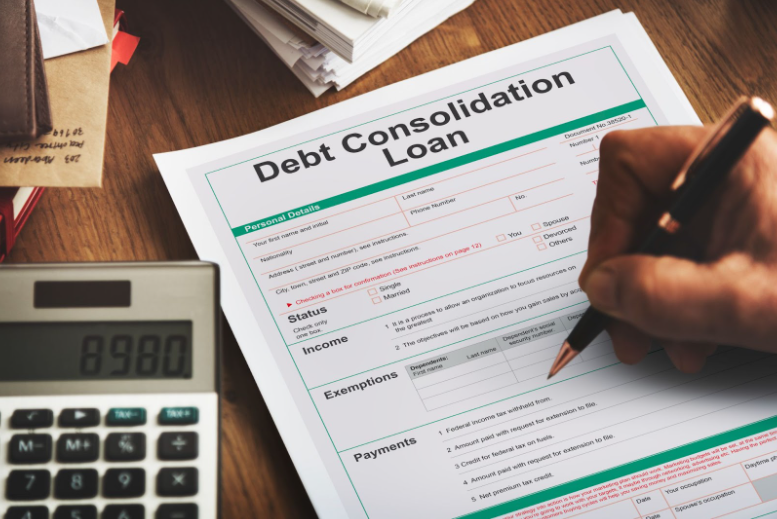
Advantages and Disadvantages of Debt Consolidation
Navigating the maze of personal finance can be an intimidating task sometimes. One concept that often emerges as a beacon of hope amidst the stormy seas of multiple debts is debt consolidation. It’s a financial strategy that offers the allure of simplicity, control, and potentially, cost savings. But what is it, really? And more importantly, is it good for everyone?
What is Debt Consolidation?
Debt consolidation is the process of converging multiple debts into a single one. Instead of juggling several loans or credit card debts, you acquire a new loan large enough to settle all the other debts. This strategy simplifies your finances by creating one consistent payment and often, it comes with a more appealing interest rate.
How Debt Consolidation Works
A debt consolidation is straightforward, which may demand careful consideration. The first step is obtaining a consolidation loan. This is a unique kind of loan, typically offered by banks, credit unions or online lenders, large enough to pay off your existing debts.
Once the loan is in your hands, you use it to pay off other debts. From this point forward, you are left with just one loan – the consolidation loan. You no longer need to remember different payment dates or worry about varied interest rates. Instead, you make one fixed payment to one lender, often at a reduced interest rate.
Different Debt Consolidation Options
There are several ways to consolidate your debts. You might take out a personal loan, opt for a balance transfer credit card, or if you’re a homeowner, consider a home equity loan. Each option has its unique set of features, interest rates, and terms. Therefore, it’s crucial to explore each one to ascertain which suits your financial scenario best.
The Process of Debt Consolidation

To undergo debt consolidation, you begin by listing out your current debts and the associated interest rates. Next, you explore different consolidation options and apply for a suitable one. If approved, you utilize the new loan or credit card to pay off your existing debts.
Subsequently, you are left with one loan to repay, usually over a longer term. The aim is to make this repayment more manageable and economical than your previous debts.
Advantages of Debt Consolidation
- One of the main appeals of debt consolidation is the potential to lower interest rates. This can be a boon, particularly if you’ve been grappling with high-interest debts like credit cards.
- Another significant advantage is the convenience of a single monthly payment. This simplifies your financial management and eliminates the risk of missing any payments.
- Debt consolidation can also positively affect your credit score over time. By paying off your debts in full and on time, you demonstrate responsible financial behavior.
- There are also psychological benefits. The relief of escaping the stress of multiple payments can provide a substantial boost to your mental wellbeing.
- Lastly, with a potentially lower interest rate, you might be able to pay off your debt faster, assuming the repayment amount remains consistent.
Disadvantages of Debt Consolidation
- One pitfall of debt consolidation is the potential for a higher overall cost. Lower monthly payments can mean a longer repayment term, resulting in more interest paid over time.
- If your consolidation loan is secured, like a home equity loan, you’re risking your collateral (your home, in this case). Failure to repay could result in losing your property.
- The temptation to overspend might lead you into a debt cycle. Since your credit cards are paid off, you might be tempted to rack up more charges, leading to even more debt.
- Your credit score could take a temporary hit when applying for a new loan due to the hard inquiries lenders make.
Things to Consider Before Opting for Debt Consolidation
Given the advantages and disadvantages, it’s crucial to thoroughly assess your financial situation before opting for debt consolidation. Do you struggle with high-interest rates, or is it the number of payments that’s overwhelming?
Exploring other options like debt management plans or budget adjustments might be beneficial. Seeking professional advice can also help illuminate the best path forward.
Is Debt Consolidation Right for You?
The question remains – is debt consolidation the best strategy for you? The answer lies in your unique circumstances. If the advantages outweigh the disadvantages for you, it could be a beneficial strategy. But always remember to make informed, careful decisions about your financial wellbeing.
Seeking Help with Debt Consolidation

A trusted debt expert can help you navigate the complexities of debt consolidation. They can provide insight into your specific situation and guide you toward a decision that’s in your best interest. Always remember that managing debt is a marathon, not a sprint. It requires patience, diligence, and smart decision-making. Call us at EmpireOne Credit at (416) 900-2324 to speak with one of our debt experts. Consultation is free, and after analyzing your financial situation, we will be able to help you reduce your debt by up to 80%, and stop all interest immediately. Start your journey towards financial independence today. Being debt-free feels good!





